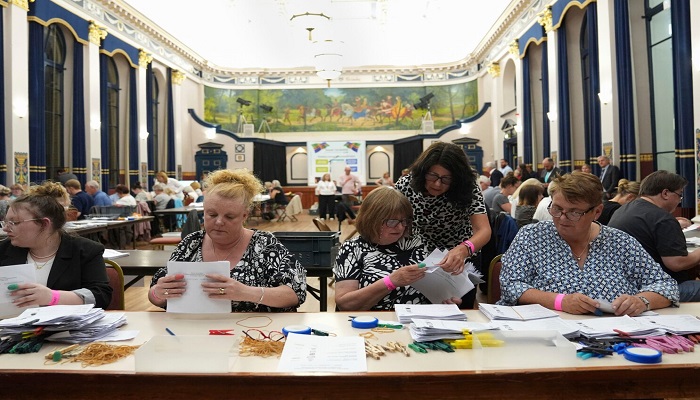Nigel Farage’s Reform UK has rocked Britain’s political establishment, winning over 670 seats, toppling councils from both Conservatives and Labour, and emerging as a powerful challenger ahead of the next general election.
In a seismic shake-up of British politics, Nigel Farage’s Reform UK has swept to victory in England’s local elections, winning 677 out of around 1,600 seats — a performance that has stunned both the Conservative and Labour parties and reshaped the political landscape.
Reform seized control of eight councils from the Conservatives, including longtime Tory bastions such as Kent, Staffordshire, and Lincolnshire, and also dealt a blow to Labour by winning control of Doncaster and Durham.
UK Government Defends New North Sea Oil and Gas Licences Amid Legal Challenge
In addition, Reform clinched the Runcorn and Helsby by-election, giving the party its fifth MP in Parliament, and claimed its first-ever mayoral wins in Greater Lincolnshire and Hull & East Yorkshire.
Farage, celebrating in Durham, declared the results marked “the end of two-party politics” and “the beginning of the end of the Conservative Party,” arguing Reform has now overtaken the Tories as the main opposition to Keir Starmer’s Labour government.
The Conservative Party suffered one of its worst election results in history, losing over 676 seats and all 16 councils it was defending. Tory leader Kemi Badenoch admitted the party faced a “long journey” to rebuild, describing the results as a “bloodbath,” but vowed to focus on unity and rebuilding credibility.
Labour, despite holding fewer seats going into the election, also underperformed expectations, losing 186 seats and seeing its vote share eroded by Reform in key areas.
Labour’s narrow loss in Doncaster and sharp setbacks in places like Durham have triggered calls within the party for Prime Minister Keir Starmer to “change course.” Backbench MPs have warned that without tangible improvements in living standards, Labour risks losing ground to the rising right-wing wave.

Sir Keir, writing in The Times, acknowledged the public’s frustration, saying “I get it,” and promised to “go further and faster” on public service reforms, immigration, and cost-of-living issues.
Meanwhile, the Liberal Democrats also capitalized on Conservative losses, gaining 163 seats and taking control of Oxfordshire, Cambridgeshire, and Shropshire. Liberal Democrats leader Sir Ed Davey claimed his party had now become the “party of Middle England.”
Germany, France, UK Urge Israel to Allow Unhindered Humanitarian Aid into Gaza
The Greens made more modest gains, adding over 40 seats but falling short in key mayoral contests such as the West of England, where they narrowly lost to Reform.
This year’s elections marked the first time the combined vote share of Labour and Conservatives has dropped below 50%, underlining Britain’s increasingly fragmented political map. Councils across the country — from Kent to Lancashire — saw unprecedented four-way contests, with Reform’s rapid rise reshaping local power balances.
Europe Seeks to Assert Control Over Ukraine Negotiations at Critical London Summit
Reform’s victories, while historic, now place the party under intense scrutiny over how it will govern. Farage has ruled out formal coalitions but has left the door open to informal cooperation with other parties, including the Conservatives, especially in councils like Leicestershire and Worcestershire, where Reform is the largest party but short of an overall majority.

Farage has promised his councillors will push to “reduce excessive expenditure” in local governments, scale back climate and diversity initiatives, and challenge the housing of asylum seekers in local hotels — positions that are likely to stir fierce debate in newly won councils.
With a general election expected in 2029, Reform’s breakthrough has sent shockwaves through Westminster and set the stage for one of the most unpredictable political eras in decades.



